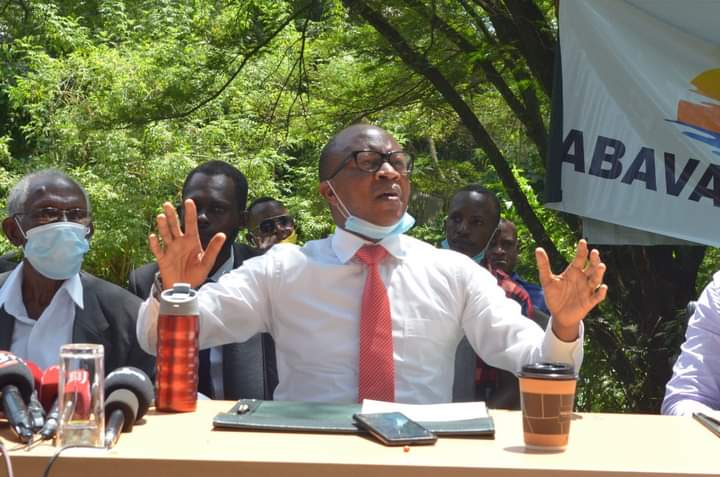By Henry Mutebe
In my view, if we are not very careful, these telecom companies are going to take everything from this economy. You have to understand who benefits from every move.
Let’s understand the basics. Scratch cards are printed and distributed to the vendors. Printing and distributing them comes at a cost to the companies. So they are very happy to avoid those costs.
Between the vendors and the telecom companies…there are third parties who have been earning some commission. The vendors also take some money as commission on sales.
For example, one buys airtime worth 100,000shs at 95,000shs or 94000shs (as earlier). Since the vendor sells at retail price with the face value of the scratch card, they make some 5000shs or 4k for every 100,000 worth of airtime they churn out.
So many people have been selling airtime cards. Just think about how many shops in Uganda sell these cards. They could be in excess of
400,000. So when you withdraw or ban scratch cards, it means you have taken that 5000shs from the 400,000 shops for every 100,000 worth of airtime they sold and put it back in the company purse.
there are so many people who have been selling scratch cards. Now all these have been cut off. The companies win…the people lose. Currently there are about 145,000 (or slightlu more) mobile money agents. So one will have to either buy from these or a few other service providers. The take home in this is that companies will incur less by cutting out many of the frontline vendors.
By eliminating scratch cards, what the telecom companies want is for you to use mobile money. Since you can’t go to an agent and deposit 1000shs or 500shs on your account, this is one way of getting people to use mobile money. The more deposits …the more business for companies.
How do they benefit? Every time you deposit money, they are in business. Let’s assume you deposit 5000shs on your mobile money account. Let’s also assume you will use it for strictly airtime. If you use that money for airtime, it means they have not incurred the cost of giving commission to a vendor as it were before.
Everytime you bought airtime/scratch card from a vendor, you in effect ensured that that person who is selling airtime also benefits or takes home some little money. Now every time you deposit on mobile money, you are nearly paying to the company everything. Only a very small percentage will be paid to the agent who made the transaction. So the companies eat bigger from this project.
By literally and technically convincing UCC (when consulted and later ordered) on possibility of eliminating scratch cards, the telecom companies won. They found ways of cutting out most vendors and ensuring that they take more from the trade than they give to the economy. The good thing about it is that government gets to take more taxes but on the whole more people have lost a potential income and companies will reap more from the public.
They used the vendors to sell their cards, airtime and services, now that the whole population is glued to their services, they are slowly but surely cutting out the people who helped them achieve this growth.The robust distribution channels that made them popular are now being cut down so that they reap big while showing little.
It is very surprising that Uganda bans scratch cards when even in countries which are very industralised or green, they still have scratch cards as an option.
In many rural areas where people don’t have many mobile money agents, getting airtime is going to become problematic. Telecom companies are already operating without a proper enabling law.
Imagine by March 2017, mobile money transactions had peaked UGx.54 trillion.
What this means is that in one year alone, the equivallent of half of all the money in the economy shuffled through the mobile money platforms.
These companies are holding a lot of money on platforms without a proper law. Supposing they broke down, what would happen? Consider this.
In 2017, it was transactions worth 54 trillion. This is half of our GDP. This means that every single day, 147.9 billion is passed, sent, received, shared or stored on mobile money platforms of these telecom companies. MTN owns over 54% of these transactions.
If you break it down, it means that every hour, 6.1 billion is being sent, stored or received through mobile money platforms of these telecoms. Which also means that every minute, over 102 million shillings is being sent, stored or received through mobile money platforms in Uganda.
The danger of this kind of platform is that if there are no proper laws to regulate and safe guard customers, you may land the economy in trouble.
Let’s assume the servers broke down and people can not access their money for 3 hours…What does this mean and what’s the cost on the economy?
If the mobile money platforms are down for three hours, it means about 18 billion belonging to the public is held captive by these companies. This is has very big implications on business. Money belonging to businesses or meant for trade becomes static.
Under normal circumstances, there should be a law to compel these companies to compensate customers for undue delays and inconviniences because people pay and use these platforms believing money is delivered and can be accessed instantly. This is why in other money transfer platforms like western union or moneygram, you pay according to how fast you want the money delivered. This is the same for bank transfers.
You also have cases where people send money to wrong numbers and telecom companies are not even sure what to do to recover the money. Even when a person has reported early enough about a wrong transfer, the companies are simply gambling and not sure what to do. Apart from a regulation issued by Bank of Uganda in 2013 and the law on Agent Banking that allows them to take deposits from the public, there is no proper legal framework to comprehensively provide for their operations.
We need a proper law to regulate these companies. Otherwise, one day, people’s money will be locked up somewhere because someone is playing with it without anyone knowing how. If any company is able to hold 1 billion shillings for even two hours, in stock markets terms, that somebody is able to buy shares and sell them and make a profit within just that limited amount of time.
Also considering that these companies are foreign owned, I wonder who is thinking about the security of the nation. These telecom companies are holding close to half of the economy. Anyone targeting us can simply bug the servers and we are finished. I hope intelligence thinks very carefully about the risks of such platforms on national security.
Do you have a story in your community or an opinion to share with us: Email us at editorial@watchdoguganda.com









